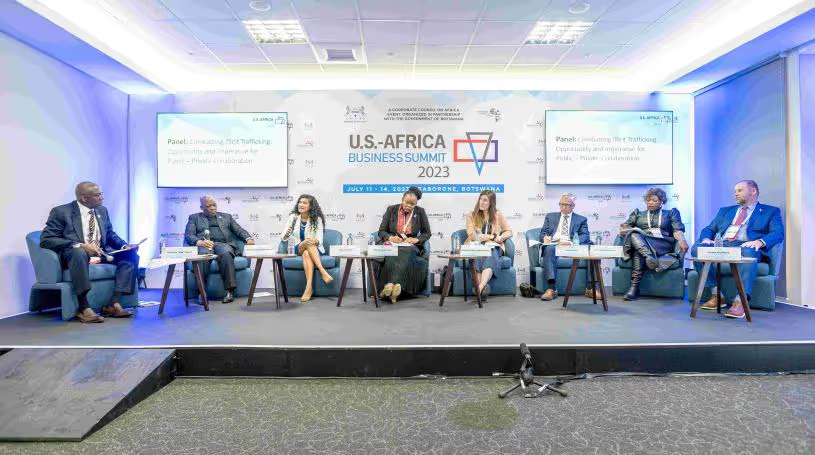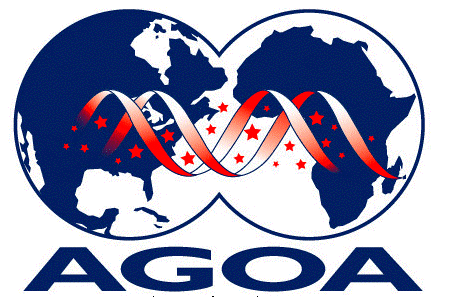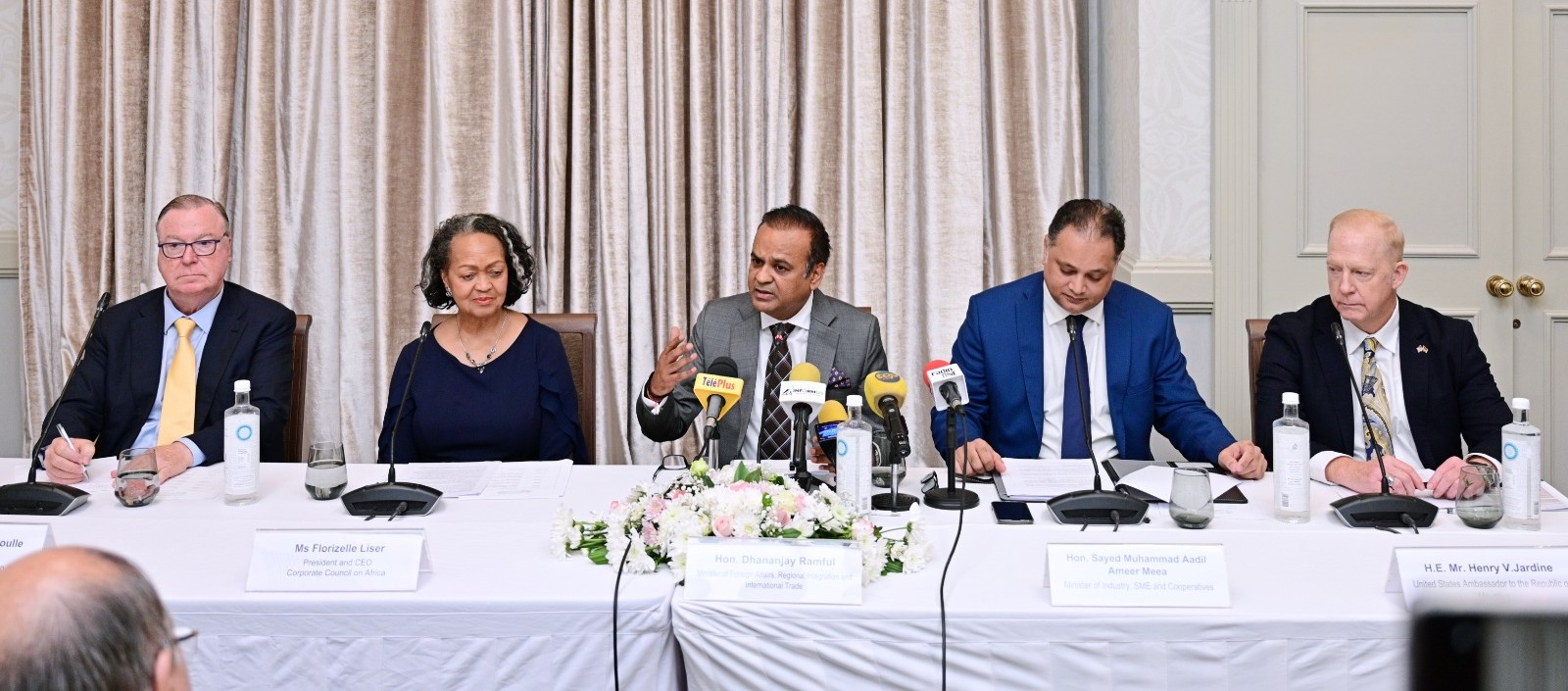Combatting Illicit Trafficking: Opportunity and Imperative for Public-Private Collaboration - 2023 U.S.-Africa Business Summit

On Thursday, July 13, 2023, day three of the U.S. Africa Business Summit, Corporate Council on Africa hosted a panel titled "Combatting Illicit Trafficking: Opportunity and Imperative for Public-Private Collaboration," skillfully moderated by General (retired) William "Kip" Ward, Vice Chair of Corporate Council on Africa’s Board of Directors. The distinguished panelists were:Hon. Thomas Kagiso Mmusi, Minister of Defense and Security, Republic of BotswanaHon. Joy Basu, Deputy Assistant Secretary of State for African Affairs, U.S. Department of StateHannah Edmonds-Camara, Associate at Covington & Burling LLP, based in the UKScott McPhee, Vice President of Operations at A2G International, United StatesDonnadelliah Maluleke, Founder & CEO of DIRTTA Aerospace, South AfricaJoseph Rank, Chief Executive & Vice President for Saudi Arabia & Africa at Lockheed Martin International, United StatesDirector General Bopelokgale Soko, Financial Intelligence Agency, Republic of BotswanaIn his introductory remarks, Gen. Ward noted that illicit trafficking of all kinds – wildlife, lumber, minerals, fish, humans, narcotics and pharmaceuticals, etc. – costs Africa over $100 billion annually, and observed that strong inter- and intra-government coordination is crucial, as well as partnering with the private sector to strengthen efforts to combat criminal trafficking networks. Hon. Mmusi's provided an insightful overview of Botswana's efforts to combat illicit trafficking, stressing the crucial role of collaboration among the private sector, government, and the public. He emphasized the establishment of comprehensive systems involving all security agencies within the country was vital, and emphasized the importance in information and intelligence gathering an analysis as well as an effective legal and justice systems.Hannah Edmonds-Camara delved into the detrimental impact of trafficking networks on global economies and the international legal frameworks addressing these issues, including Human Rights Conventions and International Labor Organization conventions. In her work advising clients on legal and regulatory compliance, She highlighted three key government strategies for regulation: Reporting Disclosure Laws, Due Diligence laws for businesses, and Force Labor Import bans, citing the United States' proactive stance in detaining goods believed to be manufactured using forced labor. Hon. Mmusi further underscored Botswana's commitment to combat illicit trafficking by referencing the 16 laws passed in 2020 to ensure compliance.Director General Bopelokgale Soko was invited to comment on the actions taken by the Financial Intelligence Agency. She emphasized the crucial lessons learned from these laws, stressing the significance of enabling regulations and asset confiscation in effective combatting of illicit trafficking.The discussion then shifted to Hon. Joy Basu, who provided insights into the United States’ perspective on supporting measures related to various forms of trafficking. She noted that trafficking has hindered economic growth and highlighted the dual perspective of illicit traffickers as both perpetrators and victims due to limited economic alternatives. Hon. Basu advocated for dignified economic opportunities to prevent individuals from engaging in illicit activities due to economic necessity, and underscored the State Department's focus on justice, dignity, and empowering individuals to realize their potential, thereby contributing to prosperity across the continent.Joseph Rank of Lockheed Martin International took the floor to explore the potential to leverage private sector technological solutions in combatting trafficking. He shared his experiences in other countries, where local software engineers were integrated to combat trafficking effectively. Rank advocated for the use of drones/remotely piloted vehicles and artificial intelligence to collect and analyze information about activities in order to detect and counter poaching and other illicit trafficking, thereby creating job opportunities in localities and addressing the issue at its root. He emphasized the potential that technology and artificial intelligence hold in combatting illicit trafficking.A2G International’s Scott McPhee echoed Rank's sentiments, emphasizing technology's instrumental role in tackling the challenge. He discussed the intricacies of poaching networks, wherein the actual poachers are not the primary beneficiaries but rather others down the line. McPhee highlighted the need to map out these networks and stated that only through the successful integration of technology and human effort could trafficking networks be stopped.Donnadelliah Maluleke elaborated on her company's approach to utilizing technology, emphasizing the importance of identification and border control. She stressed the necessity of an integrated system to mitigate suffering caused by illicit trafficking.As the discussion concluded, General Ward prompted panelists to identify the most critical contributions to why illicit trafficking remains a persistent problem and proposed potential solutions. Ms. Edmonds-Camara emphasized the importance of robust multi-stakeholder partnerships, while Director General Soko stressed the need to keep pace with evolving criminal tactics. Joseph Rank and Donnadelliah Maluleke underlined the significance of technology and empowering local partners through collaboration between the government and private sector. Scott McPhee emphasized three pillars: Legislation/Laws, Enforcement, and Technology, as essential elements to combat illicit trafficking. Hon. Joy Basu and Hon. Mmusi concurred that prevention, detection, and mitigation through partnership and cooperation hold the key to combatting illicit trafficking effectively.The panel's insights shed light on a multifaceted approach to combating illicit trafficking, emphasizing the importance of collaboration, technological innovation, and thoughtful strategies to address this global challenge.Click hereto watch the recorded session.



